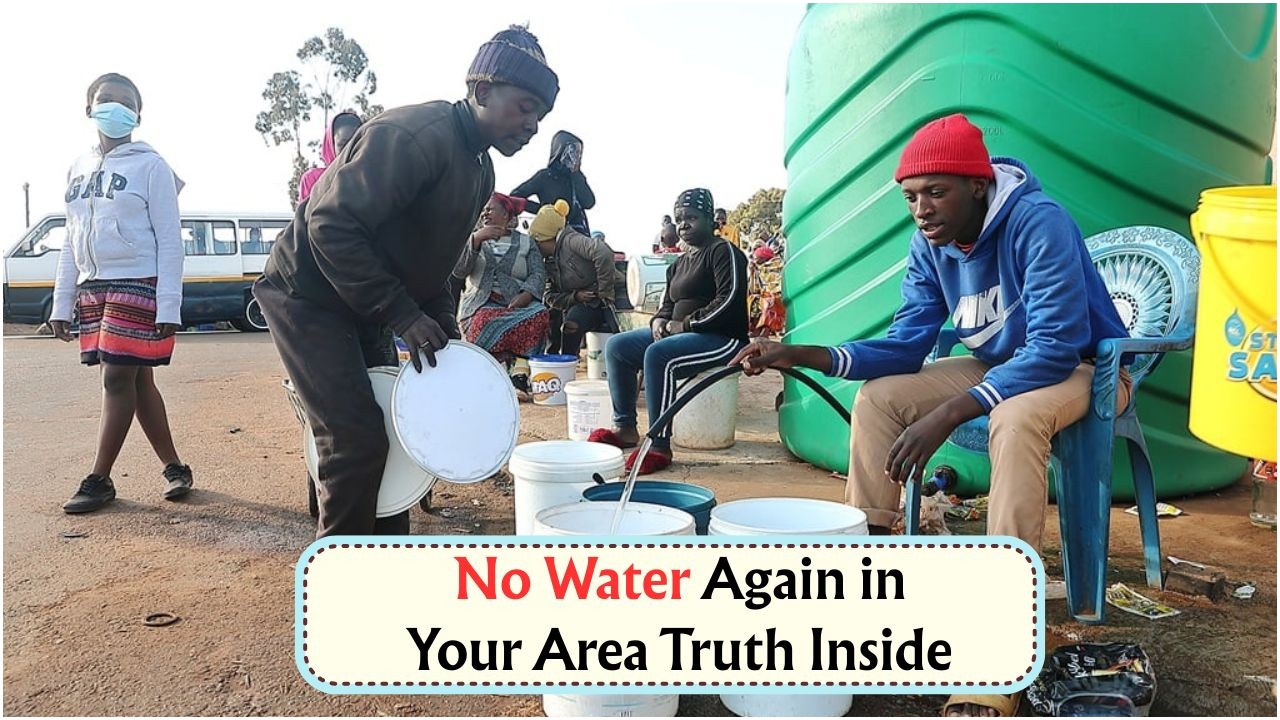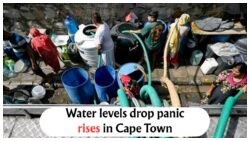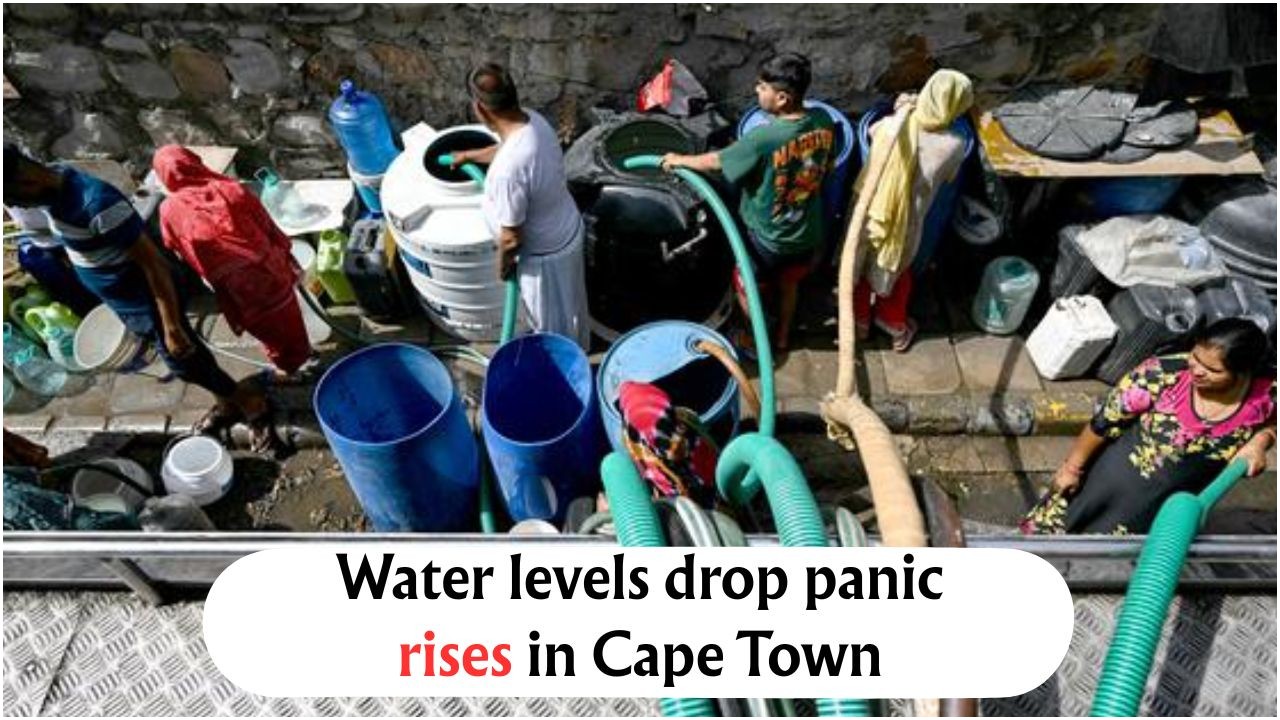South Africa’s Water Outages: South Africa has been grappling with significant water outages, impacting both urban and rural areas across the country. The scarcity of water has become a pressing issue, affecting daily life and raising concerns about future sustainability. As a country known for its diverse ecosystems and vibrant communities, the challenges posed by these water shortages are multifaceted and complex. From aging infrastructure to climatic changes, several factors contribute to the nation’s struggle to maintain a reliable water supply. Understanding these factors is crucial to devising effective solutions that ensure equitable access to water for all South Africans.
Factors Contributing to Water Outages in South Africa
Water outages in South Africa are not merely the result of one single issue but a combination of several factors. The country’s existing infrastructure, much of which dates back several decades, is often cited as a primary cause. Pipes and water treatment facilities are aging and require substantial investment to be upgraded or replaced. Additionally, South Africa’s climate is characterized by periodic droughts, which exacerbate the problem by reducing the natural availability of water resources. Population growth and urbanization also contribute significantly, as the demand for water in urban centers continues to outpace supply. Finally, governance issues, including mismanagement and corruption, have hindered effective water resource management, leading to inefficiencies and wastage.
- Aging Infrastructure
- Climatic Variability
- Urbanization
- Population Growth
- Governance Challenges
Impact of Water Shortages on South African Communities
The impact of water shortages in South Africa is felt across various sectors and communities, affecting both economic activities and daily life. Households face disruptions, with many resorting to collecting rainwater or traveling long distances to access communal taps. In agricultural sectors, water scarcity threatens food security and the livelihoods of farmers, particularly in regions heavily reliant on irrigation. The industrial sector is not immune either, as water is a critical component in many manufacturing processes. Health risks also increase during water shortages, as inadequate water supply can lead to poor hygiene and the spread of waterborne diseases. As a result, the social and economic ramifications are profound and widespread.
 Urgent Storm Surge Alert for Coastal SA: Eastern Cape and KZN Residents Advised to Seek Safety
Urgent Storm Surge Alert for Coastal SA: Eastern Cape and KZN Residents Advised to Seek Safety
- Household Disruptions
- Agricultural Challenges
- Industrial Impact
- Health Risks
Government Initiatives to Mitigate Water Outages
In response to the escalating water crisis, the South African government has launched several initiatives aimed at mitigating water outages. These programs focus on both immediate relief and long-term sustainability. One of the key strategies involves investing in infrastructure development and maintenance to ensure efficient water distribution. Additionally, the government is promoting water conservation campaigns to encourage responsible water usage among citizens. Efforts are also being made to improve water governance by addressing corruption and enhancing transparency in water management. Collaborations with international organizations and private sector partners are crucial in bringing in expertise and financial support to bolster these initiatives.
- Infrastructure Development
- Water Conservation Campaigns
- Improved Governance
- International Collaborations
Role of Technology in Addressing Water Shortages
Technology plays a pivotal role in addressing the challenges of water shortages in South Africa. Innovations in water management, such as smart metering systems and leak detection technologies, are being implemented to optimize water usage and reduce waste. Desalination plants and advanced water purification methods are also being explored as viable options to increase water supply. Furthermore, digital platforms that provide real-time data on water levels and distribution can enhance decision-making processes and improve the efficiency of water resource management. These technological advancements are crucial in developing sustainable solutions that can adapt to changing environmental conditions.
| Technology | Function | Impact |
|---|---|---|
| Smart Metering | Monitor Usage | Reduce Waste |
| Leak Detection | Identify Leaks | Prevent Loss |
| Desalination | Purify Seawater | Increase Supply |
Community Engagement in Water Conservation
Community engagement is a critical component in addressing water shortages. Empowering local communities to participate in water conservation efforts can lead to more sustainable practices and greater awareness of water issues. Educational programs that focus on the importance of water conservation and practical ways to reduce water usage can have a significant impact. Community-based initiatives, such as rainwater harvesting and the establishment of local water committees, encourage collective responsibility and action. By fostering a culture of conservation, communities can play an active role in ensuring the availability of water for future generations.
| Initiative | Purpose | Outcome |
|---|---|---|
| Educational Programs | Raise Awareness | Informed Communities |
| Rainwater Harvesting | Collect Water | Increased Supply |
| Local Water Committees | Manage Resources | Efficient Use |
International Support and Collaboration
International support and collaboration play a vital role in addressing water shortages in South Africa. Partnerships with international organizations and foreign governments provide access to resources, technology, and expertise that can enhance local efforts. Collaborative projects focus on improving infrastructure, promoting sustainable practices, and fostering innovation in water management. For instance, international partnerships have facilitated the exchange of knowledge on best practices in water conservation and the implementation of advanced technologies. Such collaborations are essential in building resilience and ensuring the long-term sustainability of South Africa’s water resources.
- Resource Sharing
- Technology Transfer
- Knowledge Exchange
FAQ Section
What are the main causes of water outages in South Africa? The main causes include aging infrastructure, climatic variability, urbanization, population growth, and governance challenges.
How do water outages affect South African households? Water outages disrupt daily life, leading to challenges in accessing clean water for drinking, cooking, and sanitation.
What role does technology play in managing water resources? Technology helps optimize water usage, reduce waste, and increase supply through innovations like smart metering and desalination.
How can communities contribute to water conservation? Communities can engage in conservation efforts through educational programs, rainwater harvesting, and forming local water committees.
What international support is available to South Africa for water management? International collaborations provide resources, technology, and expertise to improve infrastructure and promote sustainable practices.









